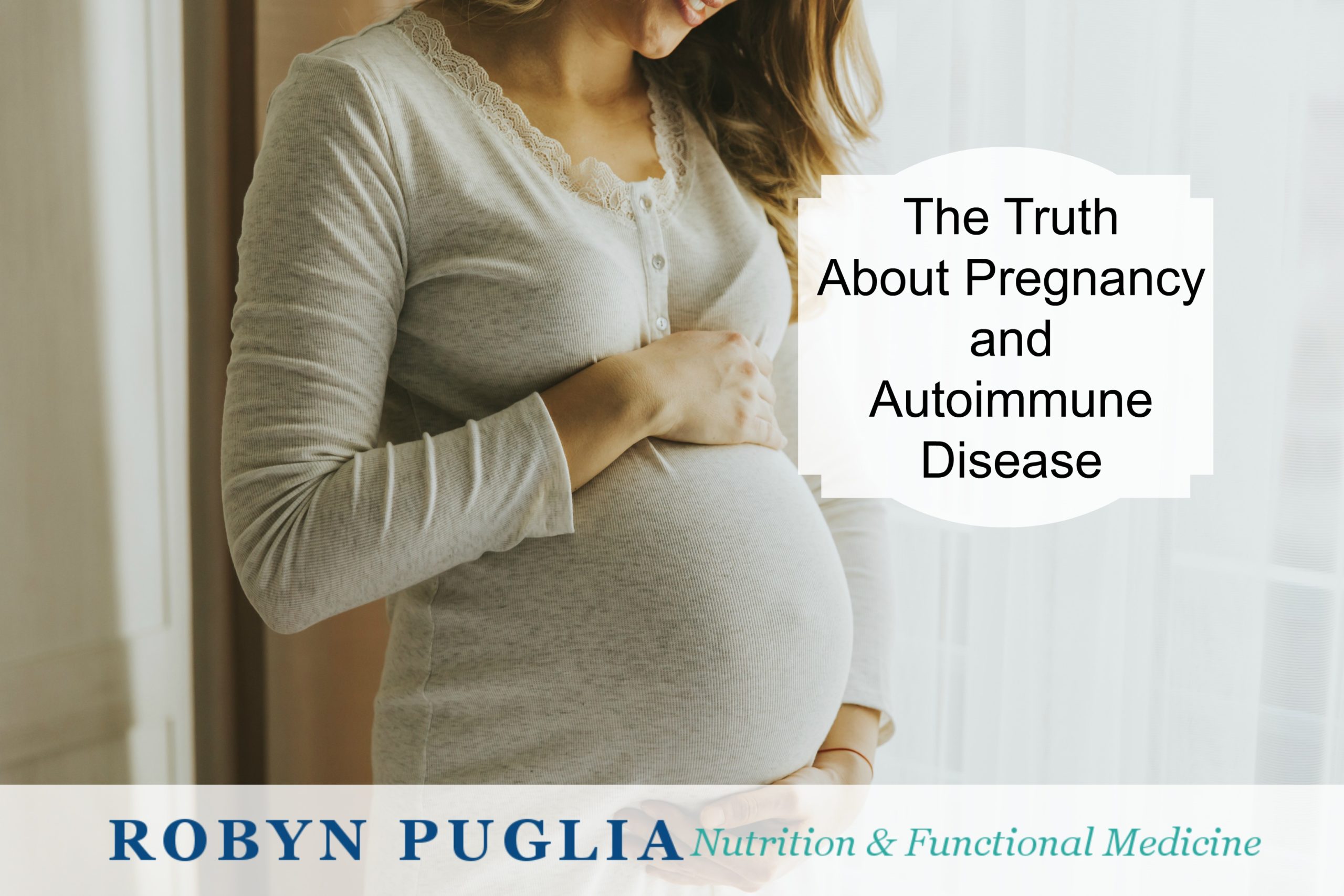You’re at the point in your life where your career and relationship is stable, and you’re ready for the next challenge: starting a family. Great news!
But if you have an autoimmune disease, have you considered the implication of pregnancy on your immune system? Or that you may have to prepare your body for pregnancy differently than those without an autoimmune condition.
So how hard is pregnancy with autoimmune disease – and what really happens to your immune system when you’re pregnant?
Why Are Autoimmune Diseases More Common in Women?
Autoimmunity is a predominantly female concern – 78% of people with autoimmune disease are women. Autoimmune diseases such as lupus, Hashimoto’s, and rheumatoid arthritis are far more common in women. The sex hormone oestrogen helps boost your immune system, while testosterone suppresses it. If you’ve ever wondered why the men in your life are completely defeated by “man flu” – this may be why! But as women make more oestrogen, it makes us more vulnerable to autoimmunity and oestrogen is especially high in pregnancy, it’s a hormone for making things grow, such as sweet babies!
Interestingly, increased rates of autoimmune disease in women may be down to the “pregnancy compensation hypothesis”. As a woman, you’ve evolved to be pregnant for many of your childbearing years – and without contraception, it’s likely you would be. When you’re pregnant, it’s the placenta that rules, ordering your immune system to modulate to prevent rejection of the foetus.
The pregnancy compensation hypothesis argues that when you’re not pregnant, your immune system ramps up to compensate – and when you’re pregnant the placenta helps control your immune system. Which would keep things balanced if you were pregnant on and off for a number of years. But if you only give birth to one or two children, there’s an imbalance – and your immune system can potentially go into overdrive. Provoking autoimmunity.
But what happens to your immune system when you’re pregnant?
Is Your Immune System Weaker During Pregnancy?
For a long time, it was believed that you have a suppressed immune system during pregnancy. But, like most aspects of human biology, the function of your immune system while pregnant is much more complex and interesting! In fact, parts of your immune system remain at full strength, whereas others are suppressed, in order to not reject the foetus. And inflammation plays a part in both the gestation and birth of your child.
Your immune system is tuned into the different stages of pregnancy:
- The anti-inflammatory stage occurs during the rapid development and growth of the fetus.
- The pro-inflammatory stages include implantation, placenta development, and childbirth.
Clearly, inflammation plays a part in pregnancy, but the baby is usually safe because of immunomodulation. Your immune system doesn’t have an on/off switch per se, and usually regulates itself pretty well. But in pregnancy, the immune system of your foetus plays an important role! Your baby’s immune system interacts with yours in a constant interplay that stops your body from rejecting the pregnancy.
The placenta also works hard to protect the fetus, using the placental immune response. The placenta forms an immunological barrier between you and your baby, granting it immune privilege and acting as a selective gate.
Also of interest: morning sickness works as an additional defence during the first trimester of pregnancy. The experience of morning sickness is horrible, but it has been linked with lower miscarriage risk. Literature suggests that your digestion is more sensitive to toxins and bacteria and morning sickness ejects these substances before they can harm the fetus. Pretty amazing, right? So although early pregnancy can feel rough – your body is working well!
Stanford researchers discovered that pregnancy involves a number of precisely timed immune changes. They hope to use the knowledge to predict premature births – where the inflammatory trigger for birth comes too early. The discovery of an “immune clock” occurring during pregnancy underlines just how integral a healthy immune system can be when pregnant.
But what if you have an autoimmune disease – can you have a normal pregnancy?
Does Autoimmune Disease Affect Pregnancy?
If you have an autoimmune disease, it can have an effect on both fertility and pregnancy. As the process of childbirth involves pro-inflammatory aspects, many new mothers experience a flare up of their symptoms shortly after giving birth, which can cause additional complications for those crucial first days with baby.
Interestingly, women without an autoimmune disease have an increased risk of developing one in the year after birth. And you are at a higher risk for a flare if you have a pre-existing condition. In diagnosed autoimmunity, many women actually experience remission and relief from symptoms during pregnancy, but some actually experience worsening of their symptoms during pregnancy.
Autoimmune diseases with a complicated relationship with pregnancy include:
- Inflammatory Bowel Disease – Poorly controlled IBD can have serious consequences – stillbirth, low gestation weight, or premature birth. Mothers with ulcerative colitis are likely to experience a flare of symptoms after birth.
- Rheumatoid arthritis – Rheumatoid arthritis can actually go into remission during pregnancy – as the majority of the time your pregnancy has an anti-inflammatory effect. But because labour is in part triggered by inflammation, you may be hit with a flare of symptoms after delivery. However, it is also possible to develop rheumatoid arthritis during your pregnancy, or postpartum.
- Systemic Lupus Erythematosus (Lupus) – Lupus can develop during pregnancy, and can cause serious complications and pregnancy loss. Current medical recommendations include waiting for six months of disease remission before conceiving. There’s a mouse study that presents new evidence that changes in the mother’s microbiome during pregnancy can also cause subsequent lupus flare-ups to feel worse.
- Grave’s disease – As the thyroid is crucial to maintaining a safe pregnancy, when the antibodies of Grave’s disease causes your thyroid to make too much thyroid hormone it can cause symptoms of hyperthyroidism in the first trimester – getting worse again in postpartum.
- Multiple sclerosis (MS) – MS symptoms reduce dramatically in the third trimester, but flares up in the three months following birth.
The evidence is clear: managing your autoimmune disease before conception helps you avoid the worst of the complications – and can reduce the severity of a postpartum flare.
How Do I Manage My Autoimmune Disease Before Conceiving?
Remember, everybody’s autoimmune disease is different. Your immune health and stability is an important consideration for conceiving, carrying and birthing a healthy baby.
Ideally, you want your autoimmune disease to be well controlled and stable before trying to conceive and also that you know your body and how to manage flare-ups when they happen. I recommend preparing your body for at least 3 months before conception (for mum and for dad by the way) and I actually think the longer you prepare the better. I you have an autoimmune illness consider starting to prepare 6 months ahead or longer.
You will need to consider whether your illness directly affects your fertility. The impact of prescription medication on pregnancy, your expectations for yourself and your level of self care and also how triggered you are by stress and lack of sleep because these are a big issue after you give birth.
Many women with autoimmune disease have healthy happy children and wonderful families. But I strongly feel that it’s particularly important for women with autoimmune disease to take particular care before, during and after pregnancy for their own health and also that of their baby.
Your autoimmune disease is affected by several factors including:
- Diet
- Gut health
- Stress
- Sleep quality
- Toxin burden
- Vitamin D status
Optimisng these factors will be very helpful in preparing your body for the wonderful journey ahead.
If you’re daunted by this list, and don’t know where to begin – book an appointment with us! Our team is here to support you through making these changes before conception or during your pregnancy.
I also designed my signature course The Foundations of Health for people like you. Maybe you’ve been let down by conventional medicine, or you hate the side effects of your prescription medication. Maybe you’re just looking for some guidance in your health journey. Maybe you’re daunted by the combination of pregnancy and autoimmune disease. My 16-module course breaks it down for you, laying the foundation for getting your health (and life) back where you want it to be – and ready for the challenges and pleasure of motherhood! Click here to learn more.
And if you’d like to stay up to date with my new blogs, recipes and recommendations: Sign up for my newsletter.






